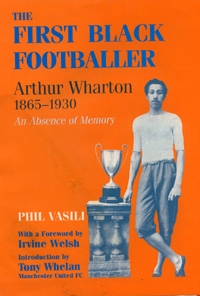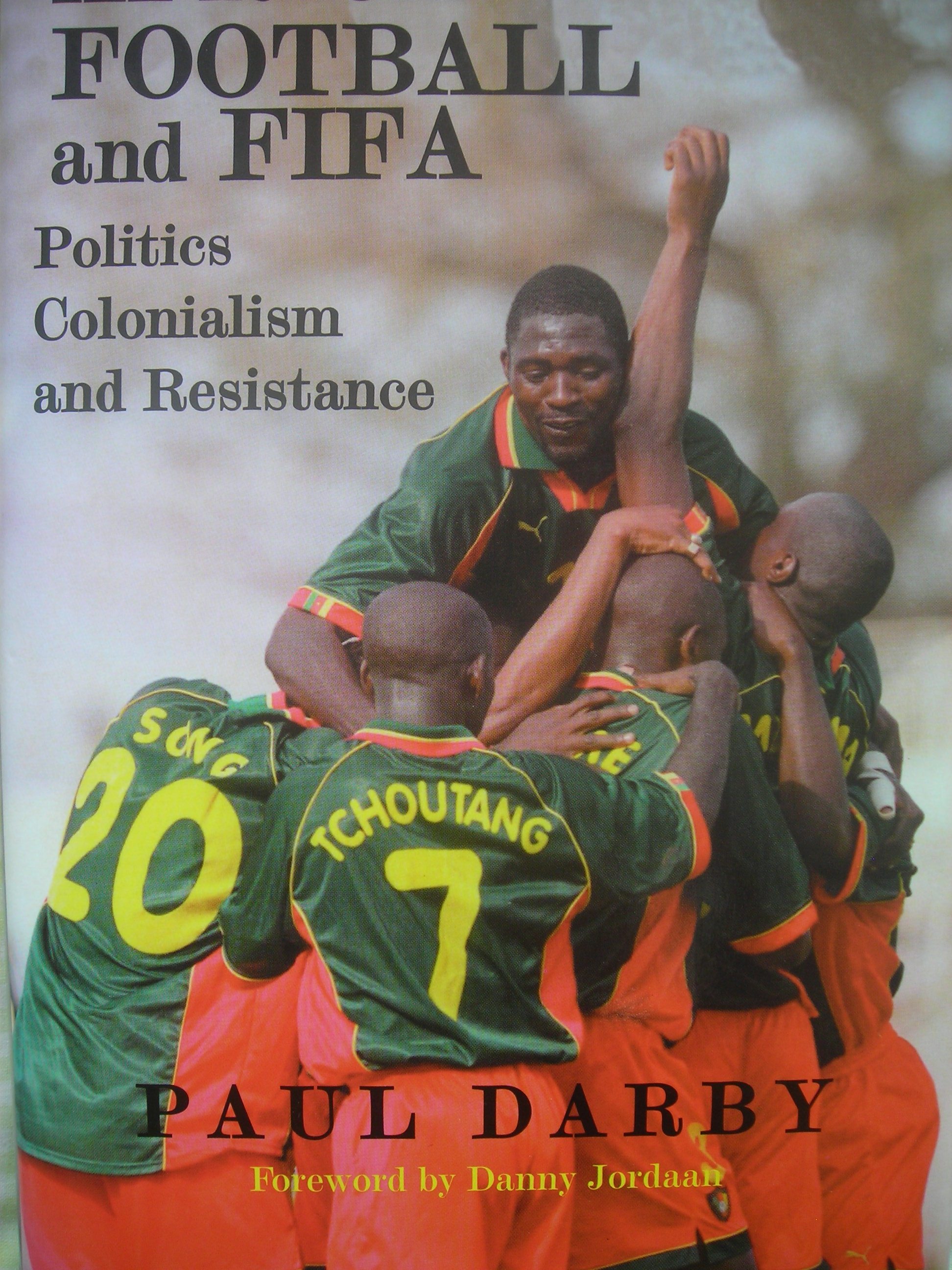|
Football in Africa: Conflict, Conciliation and Community Richard Giulianotti (Editor) & Gary Armstrong (Editor)
This groundbreaking collection provides the first detailed social analysis of football within Africa. The book features case study essays that draw heavily on detailed fieldwork to examine the distinctive football cultures that have grown up in African communities. The book should be compulsory reading, for social scientists in sport studies and African studies, and for informed football followers everywhere.
This book is available to buy here. |
|
Read more...
|
|
 |
|
 The First Black Footballer: Arthur Wharton, 1865-1930 - An Absence of Memory The First Black Footballer: Arthur Wharton, 1865-1930 - An Absence of Memory
Phil Vasili A biography of the world's first black professional footballer, set in the cultural and political context of Victorian England. Offers new insight into the onset of sport professionalism, the class divide and the roots of institutionalized racism.
Arthur Wharton was the world's first black professional footballer. He was also the first 100 yards world record holder and twice amateur sprint champion of Britain. He came from a wealthy Gold Coast/Ghanaian family, enjoyed national celebrity in England as an all-round athlete, but died a pauper in a South Yorkshire pit village. Recounted within the social, cultural and political context of Victorian England, Wharton's story not only remembers the turbulent personal and professional life of an eminent sportsman but offers fresh insight into the onset of professionalism in British sport, the class divide and the beginnings of institutionalized racism. The author is collaborating with Irvine Welsh on a dramatization of Wharton's life which Channel 4 will broadcast next year. This book is available to buy here. |
 |
|
Black People Don’t Play Soccer? Unlocking American Soccer’s Secret Weapon. Robert Woodward
Despite the migration of world football's superstars to the NASL in the 70s, hosting the World Cup in '94 and now Beckham earning his mega $'s on the other side fo the Alantic, America silll remains largely blind to the beautiful game. Football stateside has just never quite arrived. It's always struggled to match the popularity of America's homegrown sports - baseballl, basketball and American football. In his soon to be published book Robert Woodward asks why Black America aren't footballphiles and dreams of a future where African-Americans help the US to achieve its football potential. Here Woodward gives NAS readers a sneak peak at the introduction of Black People Don't Play Soccer?
I have a dream.
I’m standing in Maracana Stadium in Rio de Janeiro, Brazil, the year 2014 with a band of close friends and coaches from the States. Surrounding us are 95,000 screaming soccer enthusiasts eagerly anticipating the United States’ first World Cup Final appearance against the host nation, five-time World Cup winners Brazil. |
|
Read more...
|
|
|
 Soccer and Disaster: International Perspectives Soccer and Disaster: International Perspectives
Paul Darby, Martin Johnes, and Gavin Mellor A sending off, the conceding of a vital goal, an untimely defeat: disaster is a much used term in sport. Yet soccer has also been the victim of real disasters: events where people lost their lives. When compared to tragedies such as the Munich air disaster and the Heysel stadium disaster, the results of games become insignificant. Football is not more important than life and death.
This book looks at soccer disasters from across the globe. From the loss of talented young players in air crashes in Munich and Zambia to fatal overcrowding in South Africa, Moscow, and the UK, the game and its fans and players have been the victims of negligence, complacency and misfortune. The causes, consequences and legacies of these and other disasters are explored here in a book that reveals frightening parallels and important lessons. This book is available to buy here. |
 |
|
 Africa, Football & FIFA: Politics Colonialism & Resistance Africa, Football & FIFA: Politics Colonialism & Resistance
Paul Darby The emblem of the Federation Internationale de Football Association (FIFA) is claimed to symbolise a ‘global fraternity united in sport’. However, the relationship between FIFA and the Confédération Africaine de Football (CAF) has been underpinned by anything but fraternity. This book explores the development of African football within the context of FIFA. The relationship between the world body’s core European members and its expanding African constituency during the colonial period is given detailed treatment. This demonstrates that the game not only functioned as a form of resistance against European colonialism but also made a practical contribution to the movements for independence. The subsequent development of African football has been such that the continent is no longer on the periphery of the world game. This is apparent not only on the field of play but also within the world football’s corridors of power. However, as Paul Darby demonstrates convincingly, economic inequalities between the first and the third world seriously restrict the development of African football and continue to hinder its advance within the world game. |
|
Read more...
|
|
|
|
|
|